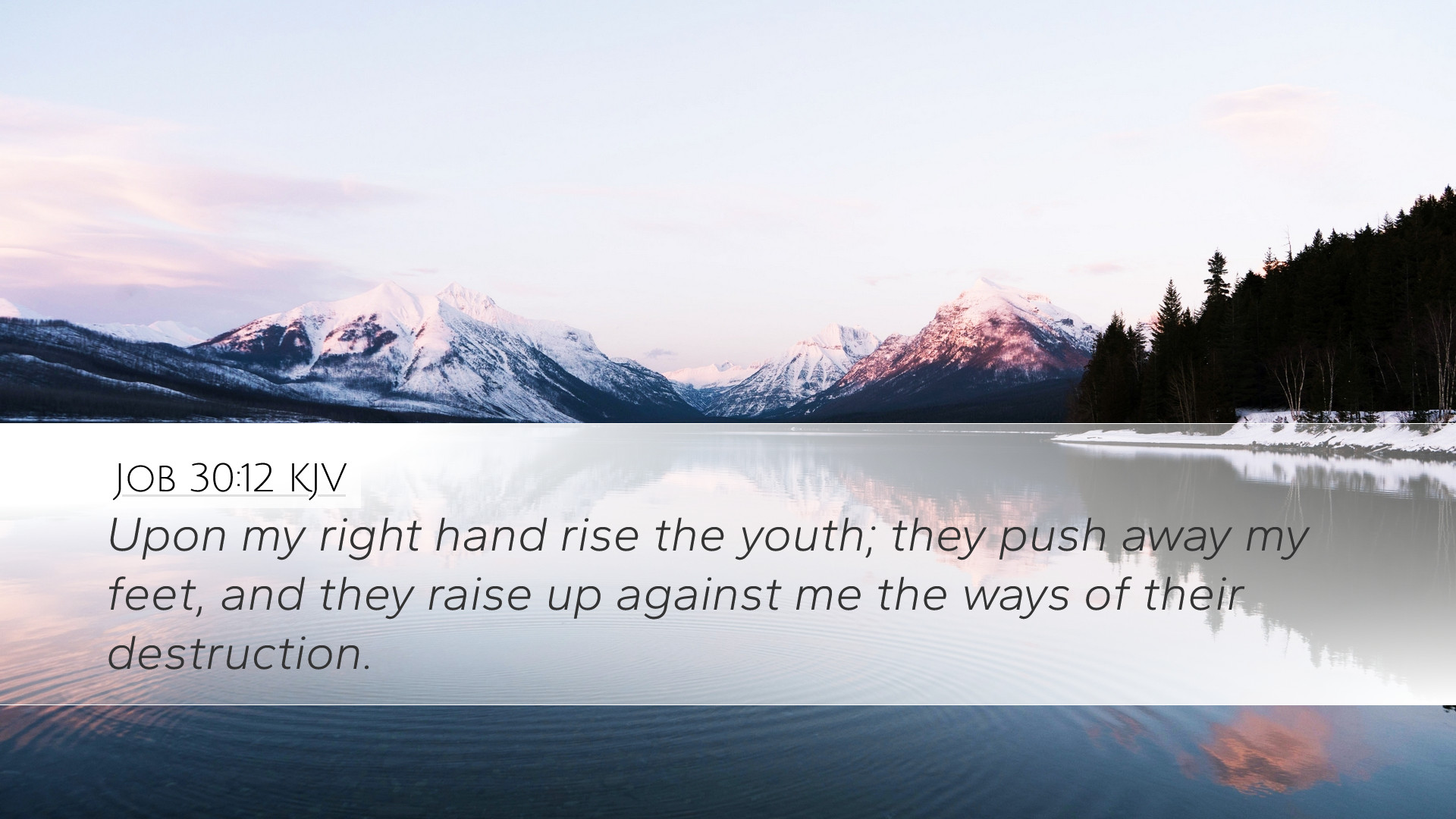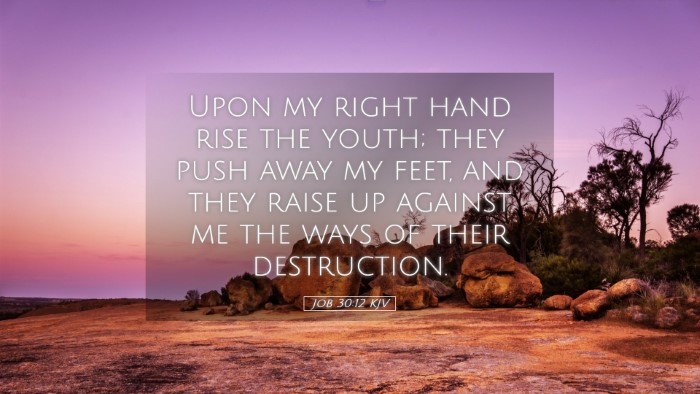Commentary on Job 30:12
Job 30:12 states, "Upon my right hand rise the youth; they push away my feet, and they raise up against me the ways of their destruction." This verse encapsulates the deep feelings of isolation and violation Job experiences amid his suffering. Herein, we will explore insights from renowned biblical commentators such as Matthew Henry, Albert Barnes, and Adam Clarke, providing a comprehensive analysis that speaks to pastors, students, theologians, and scholars.
Contextual Understanding
In the Book of Job, we witness a man enduring profound trials, grappling with immense loss and the erosion of his societal standing. The context surrounding Job 30 reveals his lamentation over a disintegrating societal order and the contempt thrust upon him by those who once respected him.
Verse Analysis
Job's Lamentation
Job 30:12 comes into a section where Job contrasts his current miserable state with his previous prosperity. He is expressing the sense of betrayal he feels from the very society he once belonged to. Both Henry and Clarke note that the term "youth" here signifies those younger and less experienced individuals who have now ascended in status, symbolizing a generational shift where the respect for elders is subverted.
Imagery of Conflict
The imagery of the "pushing away my feet" signifies exclusion and assault. Barnes emphasizes that Job feels as if these young men are pushing him aside, obstructing him from standing firm. This provides a clear metaphor of societal rejection, where honor and dignity are stripped away. The former respect he commanded is now turned into hostility.
Spiritual Implications
There is a rich array of spiritual implications found in this verse. Job not only laments his personal suffering but also hints at a broader spiritual desolation within the community. Henry notes that this verse illustrates the broader spiritual battle, where the righteous often face opposition from the wicked. Job's situation is a reflection of the universal theme of the righteous suffering at the hands of the unrighteous.
Destruction and Chaos
The phrase "the ways of their destruction" signifies a deliberate path taken by his adversaries. Clarke interprets it as a display of their intentions; they are not merely indifferent to Job’s fate, but actively working to bring about his downfall. The chaotic nature of this opposition depicts not only individual malevolence but a larger, malignant force at work in the world—akin to the struggles faced by believers throughout history.
Theological Reflections
Sovereignty in Suffering
This verse invites theological reflections on the sovereignty of God in human suffering. Job stands as a testament to the struggle of maintaining faith amidst anguish. From a theological viewpoint, Henry posits that Job’s plight should encourage believers to remain steadfast, recognizing that suffering is not indicative of divine abandonment but can serve a greater purpose in spiritual maturation.
Application for the Believer
For contemporary readers, this verse serves as a reminder of the precarious nature of human respect and societal standing. It underscores the necessity of finding one’s identity and worth in God rather than in societal validation. Barnes suggests that in times of trial, believers should seek solace in the knowledge that God ultimately oversees their fate.
Pastoral Insights
Pastors can draw from Job's lamentation to frame their teachings on suffering and community support. Job's plea is a powerful call to the church to be a haven for those who suffer. By acknowledging Job’s experience, a pastor can remind congregations to listen actively and empathetically to those in pain, rather than casting them aside or marginalizing their struggles.
Please Reflect
In closing, the gravity of Job 30:12 reflects not only historical anguish but also timeless truths about human loss, divine sovereignty, and the community's role in supporting those afflicted. By engaging deeply with this text, theologians and scholars can uncover the rich layers of meaning that speak to both the human condition and the nature of God’s unwavering presence amid turmoil.


